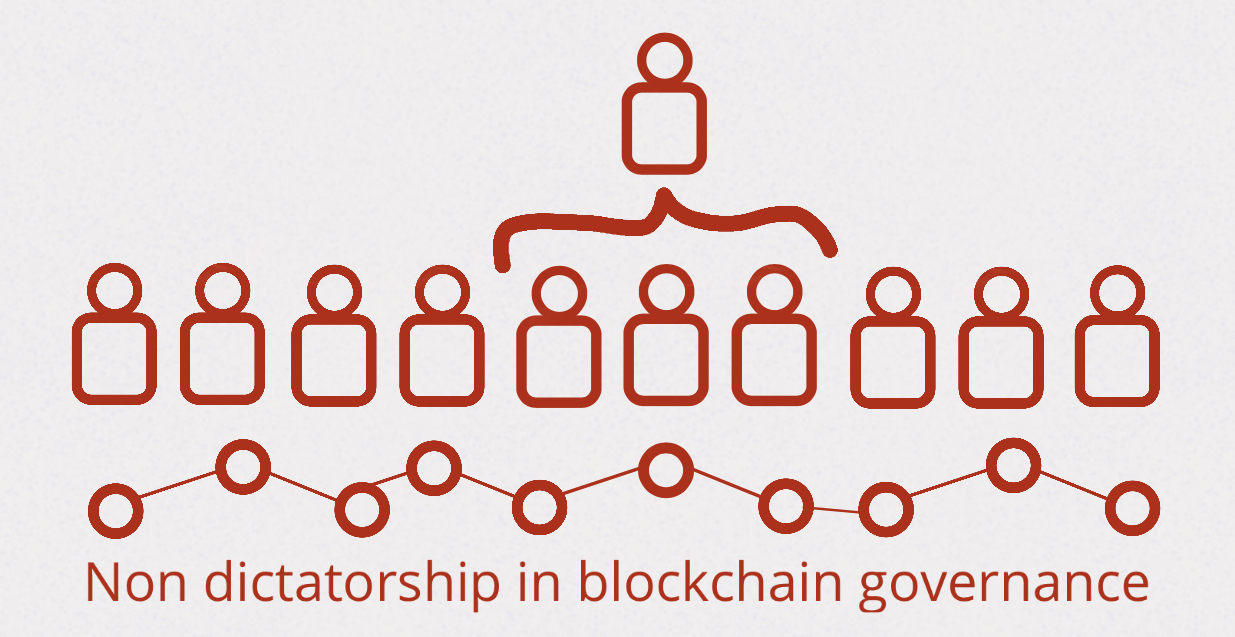Vincent Gramoli

School of Computer Science
1, Cleveland St.,
NSW 2006 Sydney
Follow @VincentGramoli
Why Non Dictatorship Is Vital For Blockchain Governance
29 Dec 2023 - Vincent
Non-dictatorship is a property that appeared in the work of Arrow back in 1950 [1]. We explain why it turns out to be a fundamental property of blockchain governance. We then explain how one can devise a governance protocol that ensures this property and refer to its smart contract implementation.
Non-dictatorship is vital to the existence of blockchain governance. In particular, not ensuring this property would simply defeat the purpose of the blockchain. A blockchain is implemented in a distributed fashion to tolerate isolated failures. The service is provided despite the failure of one of its node. With a dictator, a single individual or entity going rogue, would lead the system to go rogue. Hence dictatorship would lose the benefit of distribution.
In order to ensure non-dictatorship in blockchain governance, let’s try to define this notion in the blockchain context. The blockchain governance is the set of rules in place to decide upon important changes that impact the blockchain protocol (e.g., its upgrades, its governance reconfiguration). Such a change must happen only if multiple nodes decide so, to prevent a single node going rogue from compromising the entire blockchain protocol. Note that for this change to happen, the nodes have to reach consensus.

However, it is well known that consensus cannot be reached in the general setting (where the time it takes to deliver a message is unknown) unless the number of misbheaving (or Byzantine) nodes among n nodes is f < n/3 [2]. To prevent dicatorship in blockchain it is thus crucial to make sure that no nodes, even when part of a coalition of f < n/3 nodes, can dictate the governance. We can thus define non-dictatorship for blockchain as the ability to prevent a single adversary, controlling up to f < n/3 Byzantine nodes, from imposing their individual preference as the election outcome.
We have recently devised a blockchain governance protocol to allow the governance to take important decisions while ensuring non-dictatorship at all times. Theorem 2 of [3] shows how we ensure this property. We implemented this governance protocol as a smart contract to show that a large set of nodes can take decisions without dictatorship in a pratical way.
[1] K. J. Arrow, A difficulty in the concept of social welfare. Journal of Political Economy, vol. 58, no. 4, pp. 328–346, 1950.
[2] M. C. Pease, R. E. Shostak, and L. Lamport, Reaching agreement in the presence of faults. J. ACM, vol. 27, no. 2, pp. 228–234, 1980.
[3] D. Tennakoon, V. Gramoli. Blockchain Proportional Governance Reconfiguration: Mitigating a Governance Oligarchy. The 23rd IEEE/ACM International Symposium on Cluster, Cloud and Internet Computing (CCGrid), 2023. DOI:10.1109/CCGrid57682.2023.00057</a>.